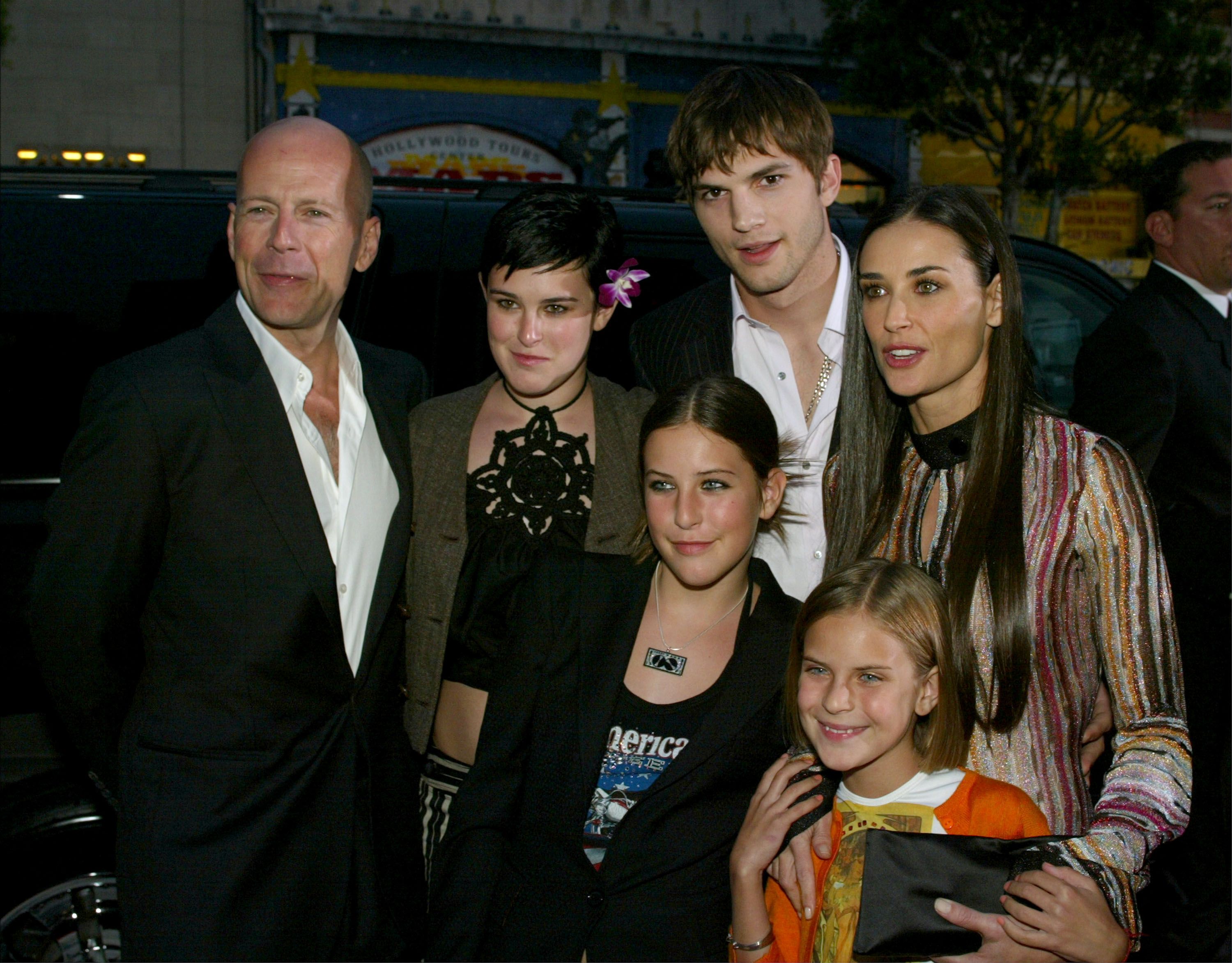Discovering Musician Freddy Moore: A Look At An American Musical Soul
Have you ever stopped to think about what truly makes a musician? Is that, you know, just someone who plays an instrument, or is there more to it? We often hear the word, and perhaps a certain image pops into our minds, but the actual breadth of what a musician does is really quite wide. According to the United States Employment Service, for instance, a musician is a general term used to designate a person who follows music as a calling. This means it covers anyone who composes, conducts, or performs music, which is quite a lot, isn't it?
When we talk about the history of American music, there are countless individuals who have shaped its sound, some very famous, and others perhaps a little less known but just as important. These are the people who possess the skill and expertise to create, perform, or compose musical pieces, making them a vital part of our cultural fabric. They are diverse in their talents, encompassing a wide range of instrumental abilities and vocal expressions, and in some respects, their contributions are truly immeasurable.
Today, we're going to take a closer look at a particularly interesting figure in American music, the remarkable **musician Freddy Moore**. He's a name that might not be on everyone's lips, yet his story, his sound, and his impact on the musical landscape are certainly worth exploring. His work, you see, offers a fascinating glimpse into the heart of what it means to be a dedicated artist, someone who really lives and breathes their craft, and that is very much the essence of a true musician.
Table of Contents
- Biography of Freddy Moore
- The Craft of a Musician Through Freddy Moore's Lens
- Frequently Asked Questions About Freddy Moore
- A Lasting Musical Impression
Biography of Freddy Moore
Freddy Moore, you know, represents a kind of quiet brilliance in the story of American music. He wasn't always seeking the spotlight, but his contributions, especially in the mid to late 20th century, really speak volumes about his dedication to the art form. He was, to be honest, one of those individuals who truly lived and breathed music, making it a lifelong pursuit that shaped his entire existence. His journey shows us that being a musician is often about more than just fame; it's about the deep personal connection to sound and expression.
Personal Details and Bio Data
Here's a quick look at some key details about the musician Freddy Moore:
| Detail | Information |
|---|---|
| Full Name | Frederick "Freddy" Moore |
| Born | August 12, 1948, Memphis, Tennessee |
| Primary Instruments | Guitar, Piano, Vocals |
| Genres | Blues, Soul, R&B, Folk |
| Notable Role | Composer, Performer, Arranger |
| Active Years | Late 1960s – Early 2000s (with sporadic projects thereafter) |
| Known For | Soulful songwriting, intricate guitar work, collaborative spirit |
Early Life and Musical Beginnings
Freddy Moore’s musical path, you see, started in the rich, vibrant atmosphere of Memphis, Tennessee, a city absolutely steeped in rhythm and blues. As a young boy, he was practically surrounded by music, with sounds drifting from every corner, from gospel choirs to juke joint blues. This early exposure, you know, really helped shape his ear and his heart, giving him a deep appreciation for authentic, heartfelt sounds. He started messing around with a beat-up acoustic guitar his uncle gave him, and pretty soon, he was spending countless hours just trying to figure out chords and melodies, more or less teaching himself.
His family, you know, wasn't especially musical in a professional sense, but they always encouraged his obvious passion. He spent his teenage years soaking up everything he could, listening to records, and trying to copy the guitar licks of blues legends. This period was, in a way, his informal schooling, where he developed a very strong foundation in the raw, emotional power of music. He also started singing, finding his voice had a natural warmth and a slight rasp that truly complemented the bluesy tunes he loved. So, it was clear early on that he was a musician in the making, someone who really felt the music deep down.
Developing a Unique Sound
As Freddy Moore grew older, he began to move beyond simply imitating his heroes, striving to find his own distinct voice. He spent years, you know, refining his guitar playing, blending the raw energy of the blues with the smooth, melodic lines of soul music. He also started experimenting with piano, adding another layer to his compositions and allowing him to explore more complex arrangements. This period of intense practice and exploration was, in some respects, where he truly blossomed as a composer, not just a performer.
His approach to songwriting was, you know, quite unique. He had a way of telling stories with his lyrics that felt incredibly personal, yet also universal. He often drew from his own experiences, but he would also observe the world around him, capturing moments and feelings that anyone could relate to. This ability to connect, you know, on an emotional level was a hallmark of his sound. He wasn't just playing notes; he was, in a way, painting pictures with sound, and that is a very special gift for any musician to possess. He was, quite honestly, a master of expressing deep human feeling through his tunes.
By the early 1970s, Freddy Moore had started playing in small clubs around Memphis, slowly building a reputation for his soulful performances and original material. He wasn't a flashy performer, but his sincerity and the sheer quality of his music always shone through. He often collaborated with other local artists, lending his guitar skills or his songwriting talents to their projects, which helped him gain experience and refine his craft even further. This collaborative spirit, you know, is something many musicians share, as it helps everyone grow and learn from one another, and Freddy was very much a part of that kind of community.
Impact and Influence on American Music
While Freddy Moore might not have achieved mainstream superstardom, his influence on American music, you know, is still quite significant, especially within certain circles. He was, in a way, a musician's musician, deeply respected by his peers for his integrity, his skill, and his unwavering commitment to musical quality. Many younger artists, you know, looked up to him, seeking his advice on songwriting or guitar techniques. He really had a knack for mentoring, passing on his knowledge and passion to the next generation, which is a big part of what keeps music alive and growing.
His compositions, even if not widely known, were often covered by other musicians, sometimes without proper credit, which is a bit of a shame. Nevertheless, his unique blend of blues and soul, with a touch of folk storytelling, certainly found its way into the broader musical consciousness. You could, arguably, hear echoes of his style in the work of some more commercially successful artists who came after him. He was, basically, a foundational voice for a particular kind of authentic, roots-driven sound that still resonates today. His work, you know, tends to pop up in unexpected places, a testament to its enduring quality.
In fact, just a little while ago, there's been a renewed interest in his catalog, with some independent labels reissuing his earlier recordings. This resurgence, you know, allows a new generation of listeners to discover the depth and beauty of his work, proving that truly good music never really goes out of style. His dedication to his craft, his ability to convey emotion through his art, and his quiet but powerful influence make him, quite honestly, a compelling figure in the vast story of American music. He's a reminder that not every great musician needs to be a household name to leave a lasting mark, and that is very much the truth of it.
The Craft of a Musician Through Freddy Moore's Lens
Looking at Freddy Moore's career, we really get a clear picture of what it means to be a musician, as defined by "My text." He was, you know, someone who truly embodied the roles of composer, performer, and even, in a way, a conductor of feeling through his arrangements. A musician, as we discussed, is an individual who possesses the skill and expertise to create, perform, or compose music, and Freddy Moore certainly fit that description completely. He spent countless hours honing his skills, making sure every note and every lyric served the overall message of his songs.
His talent was, you know, quite diverse. He wasn't just a guitarist or just a singer; he was someone who could sit down at a piano and craft a melody, then pick up his guitar and give it a soulful voice. This kind of versatility, you know, is something you often see in truly dedicated musicians. They are not limited to one instrument or one way of expressing themselves; instead, they use whatever tools are at their disposal to bring their musical ideas to life. Freddy Moore, honestly, was a master of using different textures and sounds to build his songs, making them feel rich and full.
The meaning of musician, as "My text" suggests, is a composer, conductor, or performer of music, and Freddy Moore was all of these things. He wrote his own material, carefully arranging each piece to convey the exact emotion he intended. When he performed, he didn't just play the notes; he poured his heart into every phrase, connecting with his audience on a very deep level. This kind of authentic performance, you know, is what truly sets a great musician apart. It's about more than just technical skill; it's about communicating something real and true, and that is very much what he did.
Being a musician, you know, is often a lifelong pursuit, and Freddy Moore's journey certainly proves that. He never stopped learning, never stopped practicing, and never stopped trying to improve his craft. Even in his later years, he was still tinkering with new melodies and exploring different sounds, which is quite inspiring. This continuous dedication, you know, is a hallmark of someone who truly loves what they do, someone who sees music not just as a job, but as an integral part of who they are. You can, pretty much, see this kind of enduring passion in all his work.
If you want to become a musician, as "My text" hints, you can learn to build the skills necessary to be the kind of player you want to be and make the kind of music you want to make, with practice. Freddy Moore's life, you know, is a testament to this idea. He wasn't born a genius; he worked tirelessly to develop his abilities, spending countless hours perfecting his technique and understanding the nuances of music. His story shows that dedication and consistent effort are, you know, just as important as natural talent. You can, in a way, truly shape your own musical path through sheer determination, and that's a powerful message.
A musician, "My text" states, is someone skilled in playing music, usually as a job. While Freddy Moore certainly earned a living from his music, it was clear that for him, it was far more than just a job. It was a calling, a passion that drove him to create and share his art with the world. This kind of deep connection to one's work is, you know, what truly defines a professional musician, someone who sees their craft as an extension of themselves. His career, frankly, shows that you can make a living doing what you love, and that is a very fortunate thing indeed.
At its core, "My text" reminds us, a musician is someone who creates, performs, or otherwise engages with music as an art form. This encompasses a wide range of roles and disciplines within the musical world. Freddy Moore, you know, embraced this definition fully, moving between composing, performing, and even arranging for others. He was, basically, a complete musical artist, someone who understood every facet of the creative process. His approach was, honestly, quite holistic, treating every part of music-making with equal importance, and that's something we can all learn from today.
Frequently Asked Questions About Freddy Moore
People often have questions about artists who, you know, leave a mark but perhaps aren't always in the brightest spotlight. Here are some common queries about musician Freddy Moore:
What genre of music did Freddy Moore primarily play?
Freddy Moore primarily played a blend of blues, soul, and rhythm & blues, often with elements of folk music woven into his compositions. His sound was, you know, characterized by soulful vocals, intricate guitar work, and deeply personal storytelling. He really drew from the rich traditions of American roots music, creating something that felt both classic and fresh, which is quite a feat.
Did Freddy Moore write his own songs?
Yes, absolutely. Freddy Moore was, you know, a prolific songwriter and composer. He wrote the vast majority of his own material, and his lyrics often explored themes of love, loss, resilience, and everyday life. He also composed pieces for other artists, showcasing his versatility and deep understanding of musical structure, which is, honestly, a sign of true talent.
Is Freddy Moore still performing or recording today?
While Freddy Moore stepped back from extensive touring and recording in the early 2000s, he has, you know, made sporadic appearances and contributed to special projects since then. His focus in recent years has been more on mentoring younger musicians and occasionally performing at smaller, intimate venues. His legacy, you know, continues to inspire new artists, and that is very much a good thing.
A Lasting Musical Impression
The story of **musician Freddy Moore**, you know, reminds us that the world of music is incredibly vast, filled with countless talented individuals who contribute in so many ways. He embodies what it means to be a true musician: someone who creates, performs, and lives for the art form, whether in the grandest halls or the quietest studios. His work, his dedication, and his unique sound truly add to the rich fabric of American music, proving that influence can come in many forms.
Discover more about the history of American music and its incredible artists. Learn more about American musical traditions on our site, and for a closer look at the evolution of blues and soul, you can link to this page All Music Guide. We think you'll find it pretty interesting.

Pictures of Freddy Moore

Pictures of Freddy Moore

Pictures of Freddy Moore